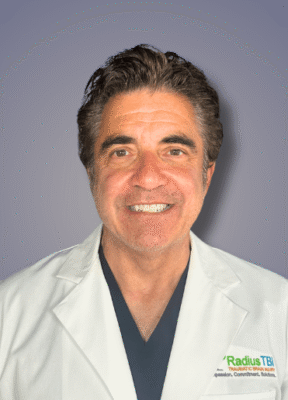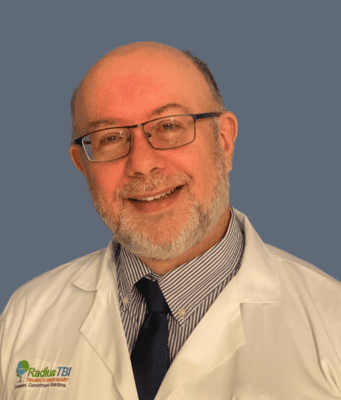
Ilya Michael Chern, MD
BOARD-CERTIFIED Emergency Medicine
Dr. Ilya Michael Chern is a highly experienced emergency medicine physician. With a career spanning more than 30 years, he has been at the forefront of saving lives in critical situations. Dr. Chern's unwavering dedication and exceptional skills have made him a trusted leader in the field of emergency medicine.
Ilya Michael Chern, MD
EDUCATION
MD: Michigan State University – East Lansing, MI
Residency: Emergency Medicine, Denver General & Affiliates – Denver, CO
Experience:
- Plantation General Hospital/ Mercy Hospital – Plantation, FL (1997-2021)
- Ex-Officio/ Board Member (2018-2021)
- Medical Director, Emergency Services (1997-2020)
- Chief of Staff (2015-2018)
- Vice Chief of Staff (2008-2014)
Committee Memberships:
- Bylaws, Chairman/Member (2008-2020)
- Continuous Quality Improvement (CQI), Chairman (2018-2020)
- Board of Trustee, Member (2015-2018)
- Medical Executive Committee, Chairman/Member (2008-2019)
- Credential & Qualifications, Chairman (2008-2015)
- Pharmacy & Therapeutics, Chairman (2004-2014)
Languages:
English, Russian
The Essential Role of an Emergency Medicine Doctor in Assisting TBI Patients at Radius TBI in Florida
In the field of traumatic brain injuries (TBIs), immediate and efficient medical care is crucial for optimal patient outcomes. At Radius TBI in Florida, our team of skilled emergency medicine doctors plays a vital role in providing timely and effective care to TBI patients. With their specialized training and expertise in emergency medicine, these doctors are essential in the early assessment, stabilization, and treatment of individuals with TBIs.
Rapid Assessment and Triage:
When a TBI patient arrives at Radius TBI, the emergency medicine doctor quickly assesses the patient’s condition. They perform a thorough evaluation, including obtaining a detailed medical history, conducting a physical examination, and assessing vital signs. This rapid assessment helps determine the severity of the TBI and guides subsequent interventions.
Stabilization and Management of Acute Symptoms:
TBIs can result in life-threatening complications that require immediate attention. Emergency medicine doctors at Radius TBI are trained to stabilize patients’ conditions and manage acute symptoms. They administer appropriate medications, initiate necessary interventions, and closely monitor patients to ensure stability and prevent further deterioration.
Coordination of Diagnostic Testing:
Accurate diagnosis is crucial in determining the extent and nature of a TBI. Emergency medicine doctors at Radius TBI coordinate and order the necessary diagnostic tests, such as CT scans or MRI scans, to visualize the brain and identify any visible abnormalities. These diagnostic results provide critical information for guiding treatment decisions.
Collaboration with the Multidisciplinary Team:
Collaboration and effective communication are paramount in providing comprehensive care to TBI patients. Emergency medicine doctors at Radius TBI work closely with a multidisciplinary team of specialists, including neurologists, neurosurgeons, and neuropsychologists. This collaborative approach ensures a cohesive treatment plan tailored to each patient’s specific needs.
Facilitation of Transfers and Referrals:
In cases where specialized care beyond the emergency department is required, the emergency medicine doctor plays a key role in facilitating timely transfers and referrals. If a TBI patient at Radius TBI needs admission to the hospital or requires specialized neurological care, the emergency medicine doctor works closely with the appropriate healthcare professionals to arrange seamless transfers.
Patient and Family Support:
Dealing with a TBI can be overwhelming for patients and their families. The emergency medicine doctor provides vital emotional support and communicates with patients and their loved ones about the diagnosis, treatment options, and expectations for recovery. They address concerns, provide guidance, and offer reassurance during the critical initial stages of care.
Emergency medicine doctors at Radius TBI in Florida are instrumental in providing immediate and comprehensive care to TBI patients.
Through their rapid assessment, stabilization of acute symptoms, coordination of diagnostic testing, collaboration with the multidisciplinary team, facilitation of transfers and referrals, and patient and family support, they ensure that TBI patients receive the best possible care during the critical early stages of their treatment. With their expertise and dedication, emergency medicine doctors play a vital role in helping TBI patients at Radius TBI on their journey to recovery.
According to the Centers for Disease Control and Prevention (CDC):
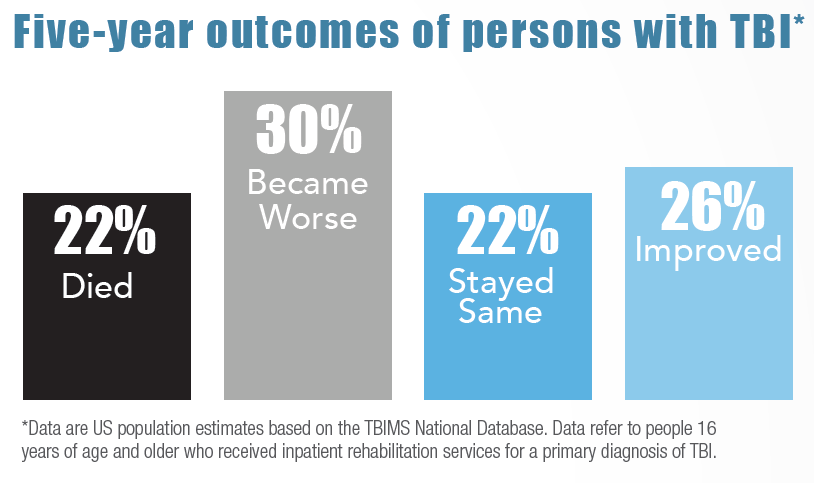
Five-year outcomes of persons with (Traumatic Brain Injury) TBI: 22% died, 30% became worse, 22% stayed the same, and 26% improved. Data are US population estimates based on the TBIMS National Database. *Data refer to people 16 years of age and older who received inpatient rehabilitation services for a primary diagnosis of TBI.
Source: https://www.cdc.gov
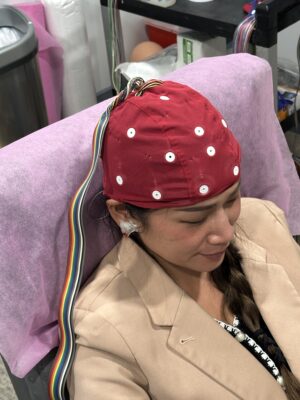
QEEG Brain Map Interpretation
In the world of neuroscience, one of the advanced tools used to understand brain function is the Quantitative Electroencephalogram (QEEG), often referred to as brain mapping. But who interprets these intricate brain maps, and why is their expertise crucial?

Meet Our No.1 Best Neuropsychologist in Tampa, FL Location
At Radius TBI, we pride ourselves on providing exceptional care for individuals suffering from traumatic brain injuries (TBI) and concussions. Our integrated medical team in Tampa, FL, includes some of the most respected and experienced professionals in the field, ensuring comprehensive and personalized care for each patient. One such esteemed professional is Dr. John J. Dabrowski, a board-certified neuropsychologist renowned for his expertise in neuropsychological assessments and cognitive function.

Sleep Disturbance
Did you know? Dealing with a traumatic brain injury (TBI) often means navigating a range of complications, one of the most prevalent being sleep disturbances. Surprisingly, 30-70% of individuals with a TBI experience some form of sleep disruption according to a study published on NCBI.
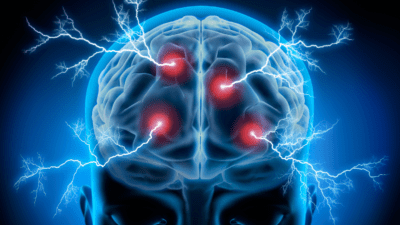
Understanding Routine EEG, QEEG, and Ambulatory EEG Tests
EEG, QEEG, and Ambulatory EEG are distinct forms of electroencephalography, each serving unique purposes in the diagnosis and monitoring of neurological conditions.
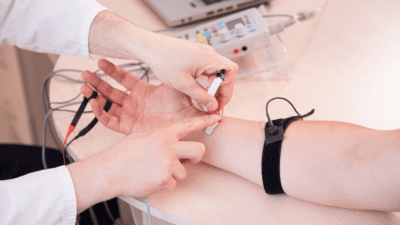
A Deep Dive into Electromyography (EMG Test): Decoding the Language of Muscles and Nerves
Electromyography (EMG) is a diagnostic procedure that plays a crucial role in unraveling the intricacies of the neuromuscular system. By measuring the electrical activity within muscles and the nerves controlling them, EMG provides valuable insights for the diagnosis and management of various neuromuscular disorders.
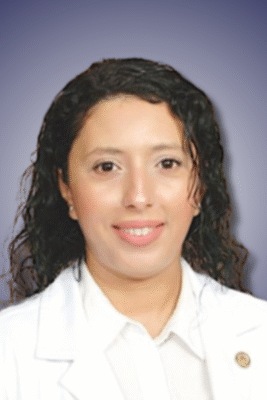
CLINICAL PHYSIOLOGIST / PSYCHOTHERAPIST: Leila Alami, DHSc, LMHC, GradCert(Neuro), BCN
DHSc: Doctor of Health Science, Specialty in Neurological Functions, Nova Southeastern University, College of Health Care Sciences, Ft. Lauderdale, FL
MS: Mental Health Counseling, Nova Southeastern University, Ft Lauderdale, FL
Fort Lauderdale Medical Team
Radius TBI comprises a multidisciplinary medical team of neurology, neuropsychology, audiology, neuro-ophthalmology, psychology, and physical therapy dedicated to providing outstanding medical care and improving the quality of life in patients suffering from traumatic brain injury (TBI) and concussion.



